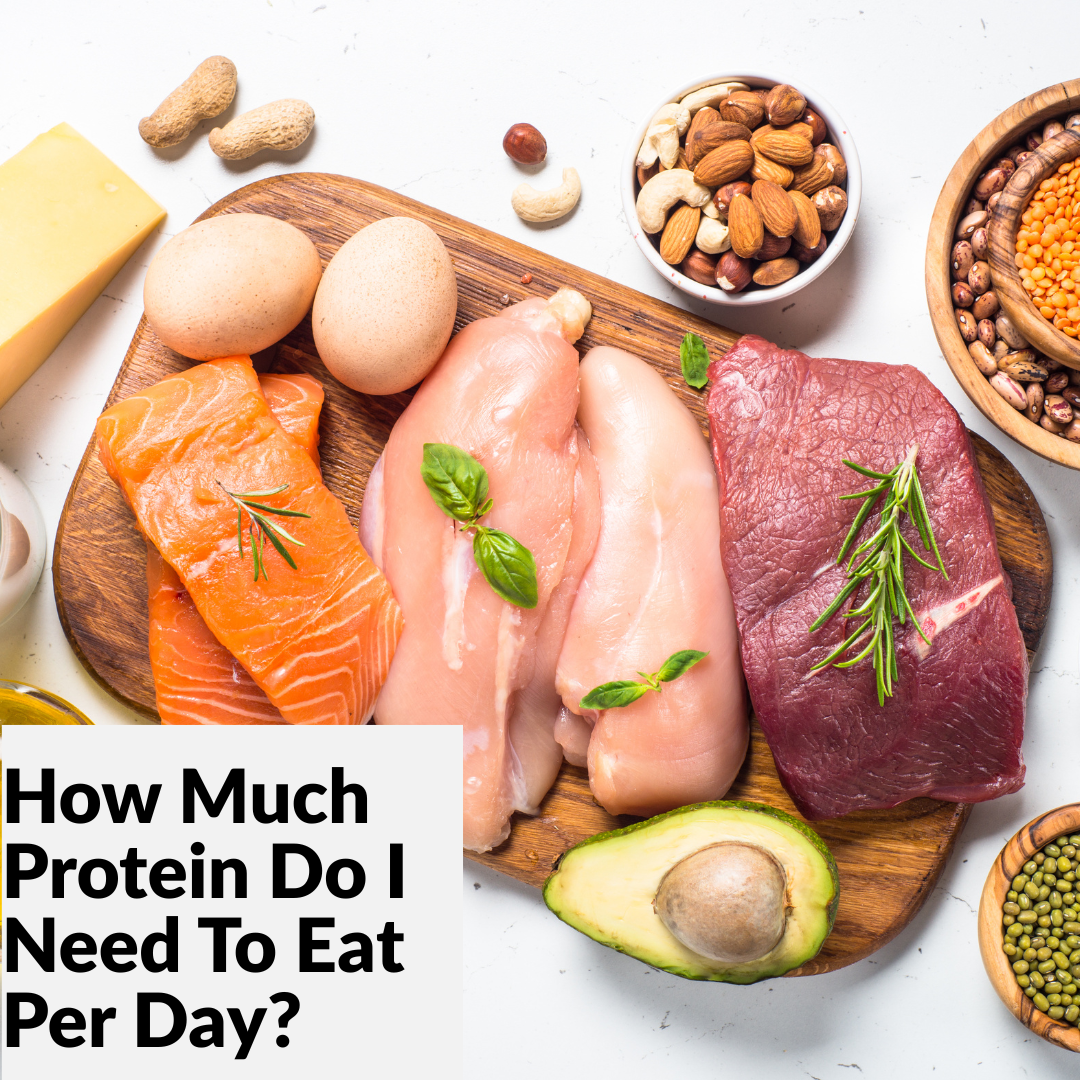
Most active adults need 0.8–1.2 grams of protein per pound of ideal body weight daily. Aim for a palm-sized portion at each meal to support muscle recovery and strength.
Let’s break down what that actually means and how to make it work in real life.
Why Does Protein Matter So Much?
Protein isn’t just for bodybuilders or people trying to get “jacked.” It’s the foundation of your:
-
Muscle repair and recovery
-
Metabolism and calorie burn
-
Hormone production
-
Bone health
-
Skin, hair, and nails
-
Satiety (aka staying full)
If you’re strength training, running, or living an active lifestyle, your body demands even more — because you’re constantly breaking down and rebuilding muscle tissue.
The Ideal Weight Rule of Thumb
Using ideal body weight (rather than current weight) gives you a more accurate protein target, especially if you have a weight-loss goal or are building muscle.
Here’s the guideline:
-
Moderately active adults: 0.8 g/lb
-
Strength training 3–4x/week: 1.0 g/lb
-
Endurance athletes or lifting 4–6x/week: 1.1–1.2 g/lb
So if your ideal weight is 150 lbs, your protein range is: 120–180 grams per day
This is where most people feel stronger, recover faster, and stay more consistent with their goals.
What Does That Look Like in Real Meals?
Let’s simplify it. You don’t need to weigh every gram or log every bite.
A great visual tool: 1 palm of protein = 20–30g
Examples:
-
Chicken breast: 25–30g per palm
-
Greek yogurt: 15–20g per ¾ cup
-
Eggs: 12g for 2 eggs
-
Cottage cheese: 20–25g per cup
-
Tofu/tempeh: 20g per palm
-
Protein powder: 20–30g per scoop
If you eat 3 meals + 1 snack, hit protein at each:
-
Breakfast: 25–35g
-
Lunch: 30–40g
-
Dinner: 30–40g
-
Snack or shake: 20–30g
That’s your full day, done.
How to Know You’re Getting Enough
You’ll start noticing:
-
Better strength in the gym
-
Less soreness after workouts
-
More stable blood sugar
-
Feeling full longer
-
Easier weight management
-
Better muscle definition
If you’re constantly hungry, craving sweets, or feeling “flat” during training… protein is often the missing link.
Common Mistakes to Avoid
Eating all your protein at dinner
Spread it evenly through the day — your muscles can only use so much at once.
Relying only on shakes
Whole-food sources offer more nutrients and keep you satisfied.
Under-eating because you’re scared of “too much”
Protein is the most satiating macronutrient and has a high thermic effect; it supports fat loss, recovery, and performance.
Leave a Comment
You must be logged in to post a comment.
0 Comments